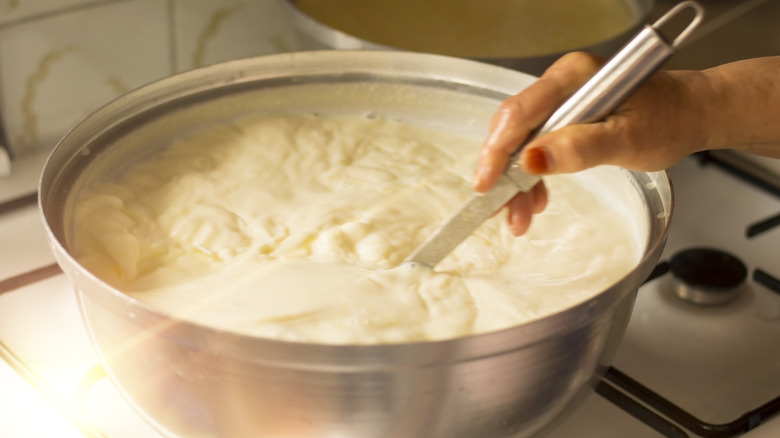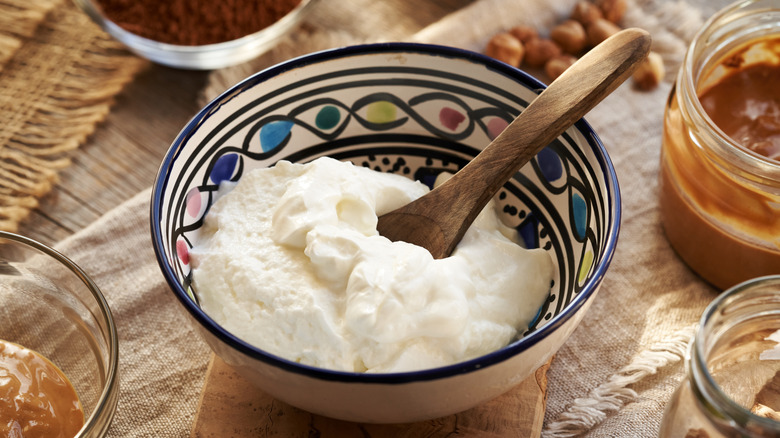Why You Should Never Mix Yogurt And Aluminum When Cooking
There are multiple ways to create and store yogurt, but that means there are also multiple ways to mess it up. For example, while yogurt and kefir are different, both of them will suffer if they come in contact with aluminum. When you heat the components of yogurt or store it in aluminum, you might notice that the final product has a bitter metallic flavor. This taste won't be fixed by adding ingredients or raising the cooking temperatures, and you won't be able to get rid of it once it's there. That may seem strange, considering many store-bought yogurts regularly come with an aluminum foil lid. However, if you want to make the best possible homemade yogurt or kefir, you should be sure to avoid not only aluminum but also copper and cast iron, too.
The science behind this flavor issue has to do with reactive materials, which include aluminum. Reactive materials in pots and pans respond negatively to high-acid ingredients, resulting in metal atoms leaching into the food and altering the overall flavor. Yogurt is high in lactic acid, which means it reacts strongly when heated in or stored in aluminum containers. Therefore, if you make or keep homemade yogurt in this material, you'll end up with an unpleasant aftertaste that could ruin the batch. The acids may also degrade the aluminum cookware itself, damaging it for future use.
Pick non-reactive materials
Of course, this means that yogurt isn't the only thing impacted by reactive cookware. Most alcohol, vinegar, chocolate, tomatoes, and all citrus can cause a metallic taste, as well, and may begin to break down your aluminum pots and pans. Other reactive cookware that could pose a problem consists of copper, cast iron, and carbon steel. Keep all this in mind when beginning your cookware-buying journey, especially if you love to cook tomato-heavy Italian dishes.
First of all, you should pick cookware and storage containers that are made of non-reactive materials. Non-stick cookware tends to have an acid-resistant coating, so you should heat your milk in that, tin, or stainless steel. Many people use glass jars or bowls for keeping individual portions, and in these containers, homemade yogurt can last two weeks or more. Use plastic or wooden spoons to stir, so that the yogurt never comes in contact with reactive materials at all. If you take care of all that, you should avoid the acrid metallic twinge.

